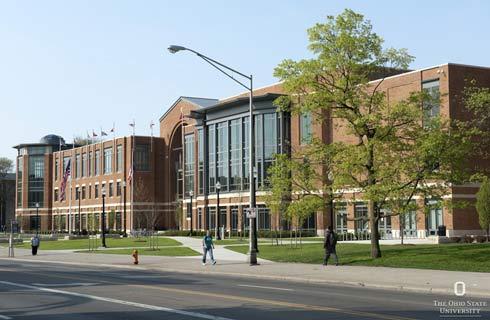国际学生入学条件
A bachelor’s degree from a regionally accredited institution in the United States or a comparable degree from a foreign academic institution is required.
In order to apply, you should list and upload transcripts for post-secondary institutions (undergraduate and graduate) if:
You earned or will earn a degree at that institution OR
You attended that institution for one year or more AND the courses and/or credits from that institution do not appear on another transcript you are uploading. You do not need to upload transcripts for courses and/or credits if the grades are listed on another institution's transcript that you are uploading (e.g., study abroad coursework credits that transferred to your bachelor's transcript, credits taken at one institution that were transferred to another university from which you earned your degree, etc).
Transcripts should show the name of each course and the grade received, as well as the year/term in which it was taken. We accept unofficial transcripts at the time of application. Many institutions allow students and alumni to access their grade report online; these reports are sufficient for application file review.
Applicants to the program must submit three letters of recommendation. One should be a professional assessment from a supervisor at the institution at which you are employed or were recently employed. The second letter should be an academic assessment from a former professor or advisor. However, you are not required to submit an academic letter if you last attended university five or more years ago. The third letter can be either professional or academic.
Resume/Curriculum Vitae
Applicants should submit a professional resume or curriculum vitae outlining all work and educational experiences, including any volunteer activities, detailing particularly those relevant to their proposed field of study; any academic and non-academic honors or prizes awarded; and publications and research projects with which the applicant has been associated.
Standardized Test Scores
Submitting GRE scores will be optional for the Fall 2023 application cycle. Applicants to the MPP program who have already taken the Graduate Record Exam - GRE can still submit their scores. Applicants must request the test scores to be sent directly to the Heller School by the appropriate code when taking the test. The code for the GRE is 3097.
International applicants whose native language is not English or who have not completed a degree program in the United States must demonstrate English language proficiency by submitting results from the Test of English as a Foreign Language exam (TOEFL), the International English Language Testing System (IELTS), or the Duolingo English Test.
We do not set a minimum required score for either test, but rather, our admissions committees take a holistic approach to reviewing applications and considers every part of the application carefully. That being said, the majority of our successful applicants tend to have a score of at least 94 on the TOEFL, a 7.0 on the IELTS, or a 115 on the Duolingo English Test.
展开
IDP—雅思考试联合主办方

雅思考试总分
7.0
- 雅思总分:7
- 托福网考总分:94
- 托福笔试总分:160
- 其他语言考试:Duolingo English Test- 115
CRICOS代码:
申请截止日期: 请与IDP联系 以获取详细信息。
课程简介
At Heller's two-year Master of Public Policy program, we are committed to the concept of knowledge advancing social justice. We live at the intersection of research and public policy at a top-ten school of social policy, a place where policy impacts people. In a diverse and supportive community, we work to develop solutions that will expand opportunity more broadly and address persistent inequality. <br><br>Our MPP program teaches students to think beyond current structures and to pursue tangible progress through pragmatic, politically feasible approaches to social change. We build understanding of the broader context around social issues, the systemic inequities that exacerbate them and the analytical tools necessary to assess root causes and implement equitable solutions.<br><br>Heller MPP graduates are creating structural change across the country whether from inside, in federal, state or local government, or from outside, via advocacy organizations to improve conditions for vulnerable populations.
展开







 预科
预科 奖学金
奖学金 实习机会
实习机会 在校学习
在校学习 跨境学习
跨境学习 校园授课-线上开始
校园授课-线上开始 在线/远程学习
在线/远程学习













 温尼伯大学
温尼伯大学

 多伦多都会大学
多伦多都会大学

 劳瑞尔大学
劳瑞尔大学

 多伦多都会大学
多伦多都会大学

 渥太华大学
渥太华大学

 西蒙菲莎大学
西蒙菲莎大学









 美国
美国
